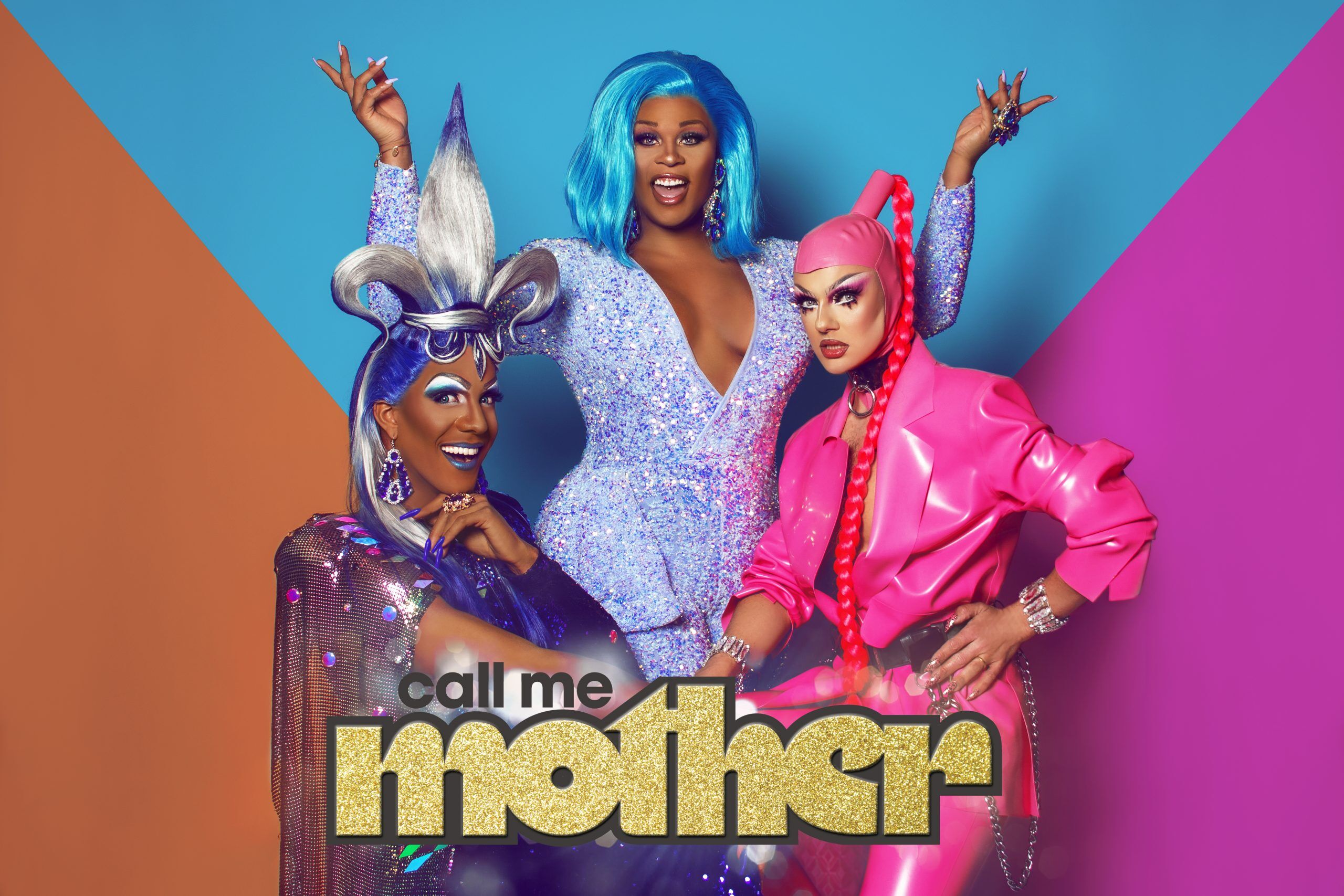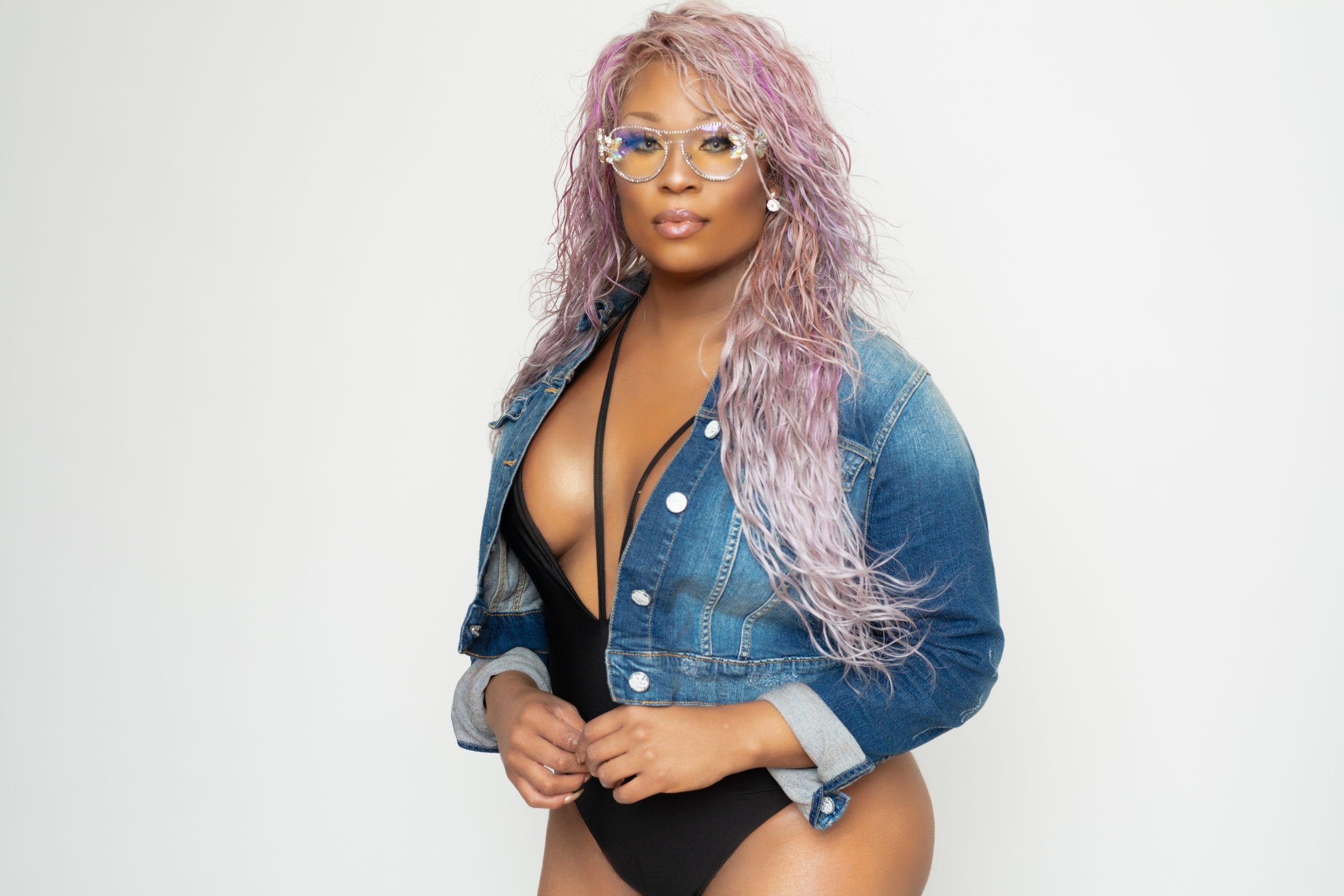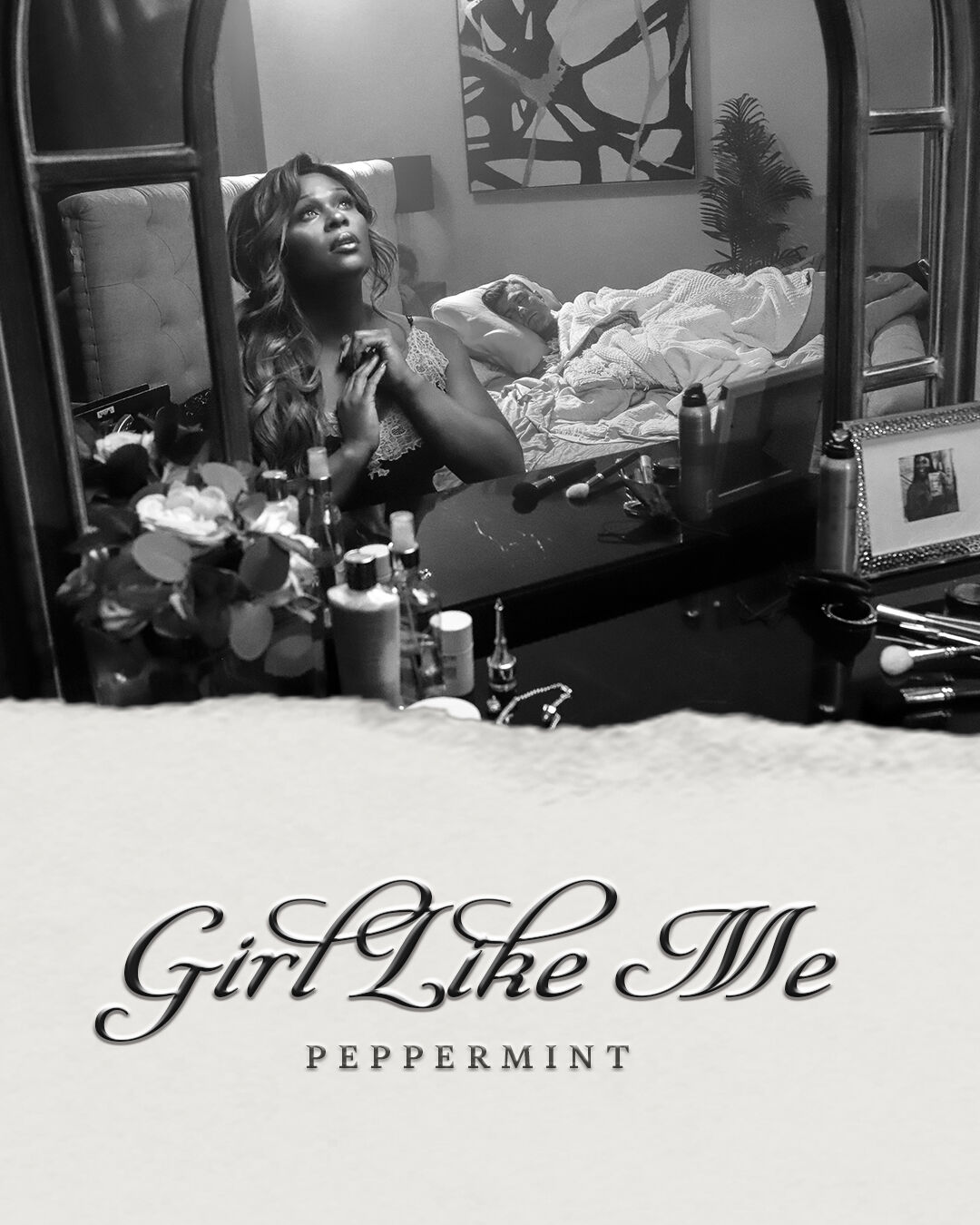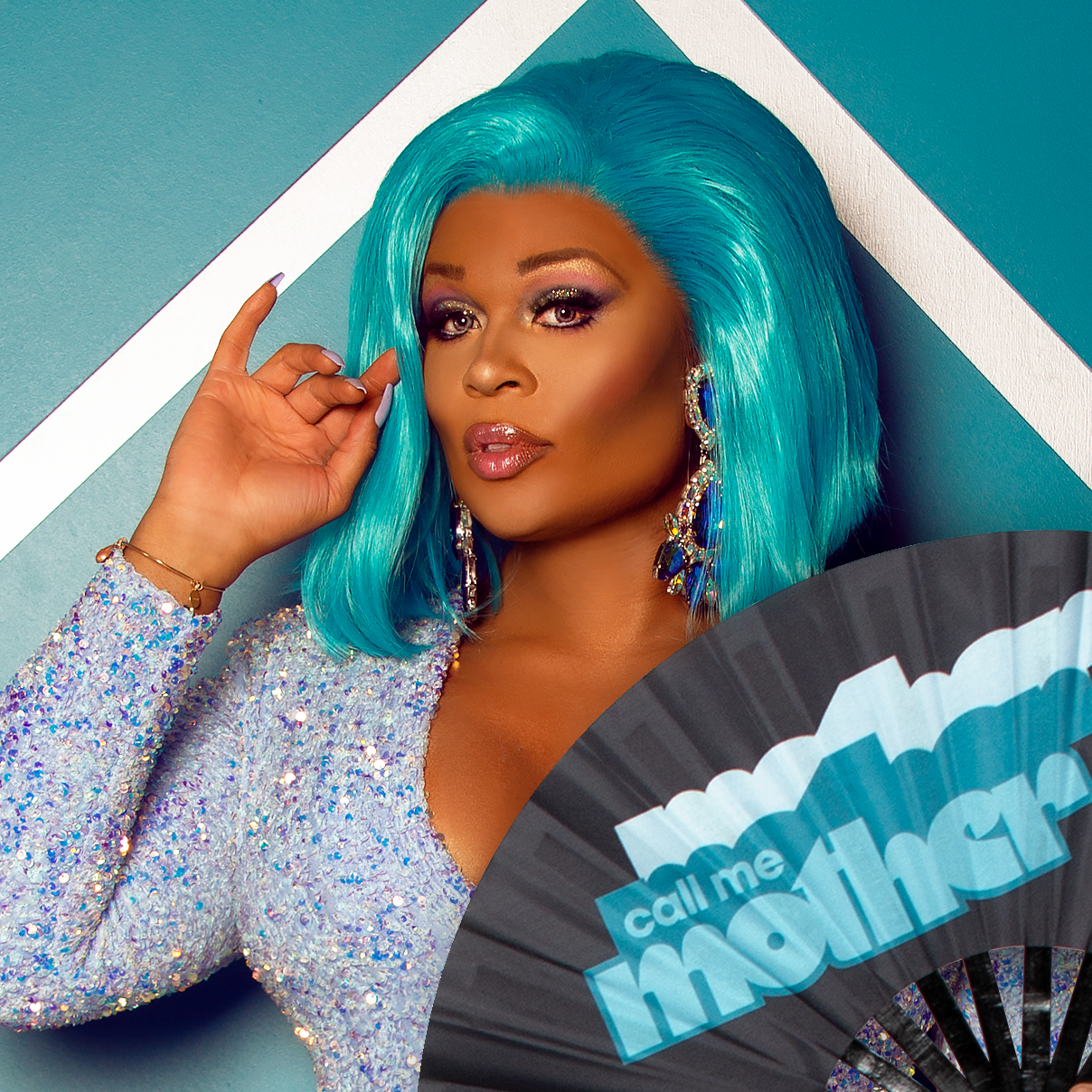Peppermint is constantly working on bigger and better things. Since placing second on Season 9 of “RuPaul’s Drag Race” in 2017, the drag queen and trans activist has only become more of an icon, from releasing music to starring on Broadway to now hosting her own drag competition show. OUTtv’s “Call Me Mother,” which Peppermint co-judges with “Drag Race UK” alum Crystal and Canadian drag icon Barbada de Barbades, sees the three queens creating their own drag houses from rising stars in Canada’s drag scene, only one of whom can win and become the “First Child of Drag.” INTO sat down with Peppermint to talk being behind the judges’ table for a change, how “Call Me Mother” shows that drag is for everyone and how she’s telling new trans stories through her music.
INTO: Congrats on “Call Me Mother”! How do you feel about stepping into this role of host and judge after being in the other position a few years ago?
PEPPERMINT: It feels great to be a judge on the show and a mentor and a mother of a house. You know, it gives me a lot of insight. Obviously, the structure of shows like “Drag Race” isn’t the same, really, so there’s not that much of a direct comparison, but just being a reality show competitor, I understand a lot what the talent on the show, the competitors on “Call Me Mother,” is going through. So I was able to give them a few tricks.
You know, in all TV, it’s less about — if you’re doing a baking competition, it’s really less about the ingredients you’re putting into the cake than it is about the one-liners you say to the camera. And that’s one of the things that people don’t really understand. They just need you to be busy doing something while you’re giving them funny things to say on camera.
INTO: So it’s all about personality. Did that have something to do with how you chose the drag artists for your house on the show?
PEPPERMINT: This show heavily focuses on the actual talent of the entertainer and performance. Performance on stage is such a huge portion of the judging that it’s inescapable. Whereas on other shows, whether you can sew or not — you can still win if you can’t sew on shows like “Drag Race.” It’s really mostly about those confessionals and other things. And so this is really about how you perform, and do you take the notes on stage as a performer, and the liveliness of it all.
INTO: Love that. I’m also curious about what it’s like to host with Crystal and Barbada. You aren’t really a trio that anyone would have put together prior to this show coming out, especially because you’re not Canadian. What was it like working with them?
PEPPERMINT: It was great meeting them. I didn’t recognize Crystal the first day before we started filming, because I didn’t associate Crystal with Canada! Even though she’s obviously Canadian, I associated her with the U.K. So I didn’t expect to see Crystal, but obviously, it was a pleasant surprise. And she’s a wonderful judge and colleague. Same thing with Barbada, who is so dedicated to the art form of drag, which is really refreshing. Especially on a show like this.

INTO: And what do you feel each of you is bringing to the table in terms of different styles of drag?
PEPPERMINT: Well, certainly, my focus has always been, for myself and for the members of my drag house, the connection with the audience, over the look, over the aesthetic — which is obviously a very big part. It’s an important, almost an immovable part. But you know, I think the part that can put it over the edge is the connection to the music and the audience and really just looking like this song is coming from you. This performance is coming from you in that moment, versus you’re just someone who’s doing the song. Not to say that that’s what the other teams did. But that’s just what I was looking for, when I was considering everyone for my house.
We all bring different strengths, and Crystal’s strength is much more fashion than mine is, and much more rock and roll. We all possess the same qualities, but the rock and roll of it all, Crystal lives in that light, which is so beautiful. And Barbada’s house, you know — I have to be careful about how much I say about the houses and the differences between them. Because that’s for people to find out when they watch. But we all got talented entertainers, and each of the mothers brings their own flair of love and support and fierceness and drag.
“My focus has always been the connection with the audience, over the look, over the aesthetic.”
INTO: Speaking of the entertainers on the show, it’s great that “Call Me Mother” is a little more inclusive of the type of drag that it’s showing, featuring not only fabulous queens, but also kings and artists who present as nonbinary in drag. How do you feel about being one of the most inclusive platforms for drag that’s out there right now?
PEPPERMINT: I think it’s about time. I think it’s necessary. It’s something that we all want to see, it’s something that we all deserve to see. Drag is for everyone, for everyone to enjoy and watch and then also to participate in. And I’m glad we’re able to show that on the show. It makes me wonder what a season two would be and who would go and so on and so forth.
INTO: Another great thing about “Call Me Mother” is its focus on drag families, which are super integral to drag culture but don’t often get the spotlight in popular media. How do you feel about putting that family structure in the forefront of the show?
PEPPERMINT: I think it’s really important. It’s transferable for sure. I mean, you think of drag families and people can see how they can operate and the structure of them, and then that’s easily applicable to many queer and trans people who build their own chosen family. This is a part of that.
Drag houses are deeply rooted and connected to ballroom culture. Those connections and bonds have been…lifesaving,
Drag houses are deeply rooted and connected to ballroom culture. Which is obviously very different, but now it’s parallel, sort of. But those connections and bonds have been, I think, lifesaving, certainly, for a lot of people: freeing, lifesaving, all of those things, in terms of houses in general, and houses as they relate to the ballroom community. But they can also be wonderful places for self-expression and learning about drag and all the different things that go into it.
It’s great to be able to show. On TV, we’ve heard, “Oh, these two people have the same last name, they must be from the same drag house,” but we don’t ever really know what that house is about or what it’s like or what they go through. So we get to see the formation of a house and then also the destruction of a couple of houses.

INTO: Yeah, I’ve heard that the show is super dramatic! Which makes sense, given the rivalries. I know you’re not at liberty to tell me too much about it, but can we expect a lot of dramatic moments?
PEPPERMINT: Oh, absolutely. The thing is, even though I am a judge, and we get to be around what’s happening during the challenges, there’s a whole nother side that I haven’t even seen. When the drag children aren’t doing the challenge, when they’re off somewhere — I don’t know if they’re fighting, having sex, I don’t even know what’s going on. But there are some highly emotional moments.
I’m looking forward to some great conversations that hopefully will come out of people being able to see the show. Obviously, we talk about gender, we talk about sexuality, we talk about how all those things relate, can relate and do relate to the art form of drag. We talk about representation in drag. And we also talk about the connection to a lot of the things outside of drag. Some of the different challenges that present themselves are just really interesting. People will be able to make their own conclusions, I guess, but I’m enjoying it!
INTO: I would hope so! I’d love to move into talking a little bit about your music. You’re currently in the middle of releasing this trilogy of albums, “A Girl Like Me.” What led you to pursuing that format for your music?
Obviously, we talk about gender, we talk about sexuality, we talk about how all those things relate, can relate and do relate to the art form of drag.
PEPPERMINT: I was really emotional after a breakup and started writing about the relationship. I had a few songs, I was like, “This’ll do on an album.” And then before I knew it, I had like 25 songs. I’m like, “This is too much for an album!” And so I decided to break it up to the beginning, in the middle and end of the relationship. So that’s the trilogy there. Part one is out now, and part two and three come out in the new year.
Part one is called “A Girl Like Me: Letters To My Lovers.” Instead of doing a bunch of different music videos, I created a short film that starts to tell the story visually. I just wanted an excuse to have sex on camera, I think. I’m really proud of it!

The album is about this relationship, which is, I think, universal; everyone understands love and breakups. But everyone doesn’t always have the chance to see a transgender woman, a Black transgender person, loved and adored and lifted up publicly by people who love them and care about them. A lot of these people have partners and people who love them, and we just want to put something out there that will show other people, A, that we exist, and B, that we exist in terms of love. People love us and care about us and want to know where we are and what we’re up to and what we’re doing.
Then this is also for people who maybe don’t know any of those things, and maybe it’ll be a blueprint on how they can bring closer the transgender people that are in their lives, or bring a transgender person into their life, and realize that it’s a blessing to have someone who has sorted through the very rigid and complex structure of binary gender.
INTO: And what will the second part of the trilogy be like?
PEPPERMINT: Yeah, volume two, which comes out at the beginning of 2022, is called “Moment of Weakness.” Again, the whole concept of the album is the beginning, middle and end of the relationship. So the middle of the relationship is when all that doubt and resentment starts to set in and the relationship starts to crumble. The music reflects that — it’s a little bit more rock and roll, a little bit more spicy. And there’s some great features on album two.
The title, in addition to it being one of the songs, really is about the moment of weakness: What will your moment of weakness be? And when will it be? The first time you see your ex after the breakup, will you cry? Will you curse them out? Will you want to sleep with them again? Like, what rules are you going to break that you set up for yourself? That’s what this album is all about. There’s a really beautiful song I can’t wait for people to hear called “Broken Home,” which is on the album, and again, it comes out in January. I’m excited about it.
INTO: I also wanted to talk about your work with Bob the Drag Queen. Of course, you two have been friends for a long time, but your collaborations over the past year, particularly creating the Black Queer Town Hall, has been really remarkable. How did that come about?
PEPPERMINT: Thank you for asking that. Bob and I, we’d been having daily conversations, especially at the height of the pandemic and during 2020. It was honestly right after the killing of Ahmaud Arbery. We just called each other, and we didn’t even talk. I heard her crying, she heard me crying, and we just cried. And then we were like, “What can we do? We’re having these conversations with each other. Let’s just tape it and put it out.” That’s really where it started. And then Bob had the idea to do Black Queer Town Hall, because President Obama had done a Black town hall in 2020. We were inspired by that. We wanted to have an event that would focus on the joy and celebration of the Black queer community. So we put it together.
We finished our second one this year, which was lovely. We’re hoping to do the next year’s in person, but we’ll see how that’s gonna go. But I’m excited about it. And we’re actually raising money — we just partnered with Chevrolet, and Chevrolet is going to match donations to Black Queer Town Hall through the end of the year. We’re hoping to raise a good amount of money, which will help us put on a live event. People can go to blackqueertownhall.org if they want to support. We’re taking donations all the time now that we’re a charity.
“Call Me Mother” is now streaming on OUTtv. Peppermint’s music, including her most recent single “Here For It,” is available on all platforms.
This interview has been edited for length and clarity.
Don't forget to share:
Help make sure LGBTQ+ stories are being told...
We can't rely on mainstream media to tell our stories. That's why we don't lock our articles behind a paywall. Will you support our mission with a contribution today?
Cancel anytime · Proudly LGBTQ+ owned and operated
Read More in Culture
The Latest on INTO
Subscribe to get a twice-weekly dose of queer news, updates, and insights from the INTO team.
in Your Inbox













